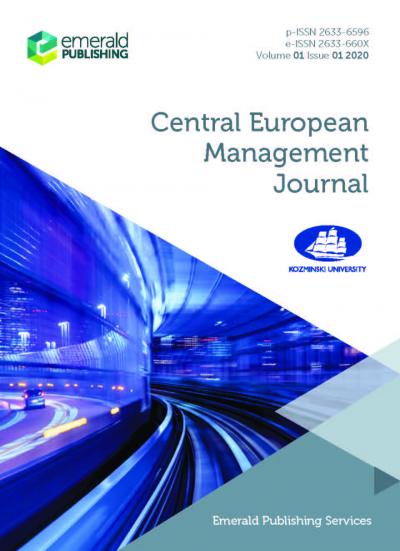Demutualization, Corporatization, and Sustainability Initiatives: Evidence from the European Stock Exchange Industry
Agata Adamska
Warsaw School of Economics
Tomasz Dąbrowski
Warsaw School of Economics
Magdalena Homa
University of Wroclaw
Monika Mościbrodzka
University of Wroclaw
Jacek Tomaszewski
Warsaw School of Economics
9/2022 30 (3) Central European Management Journal
DOI 10.7206/cemj.2658-0845.80








